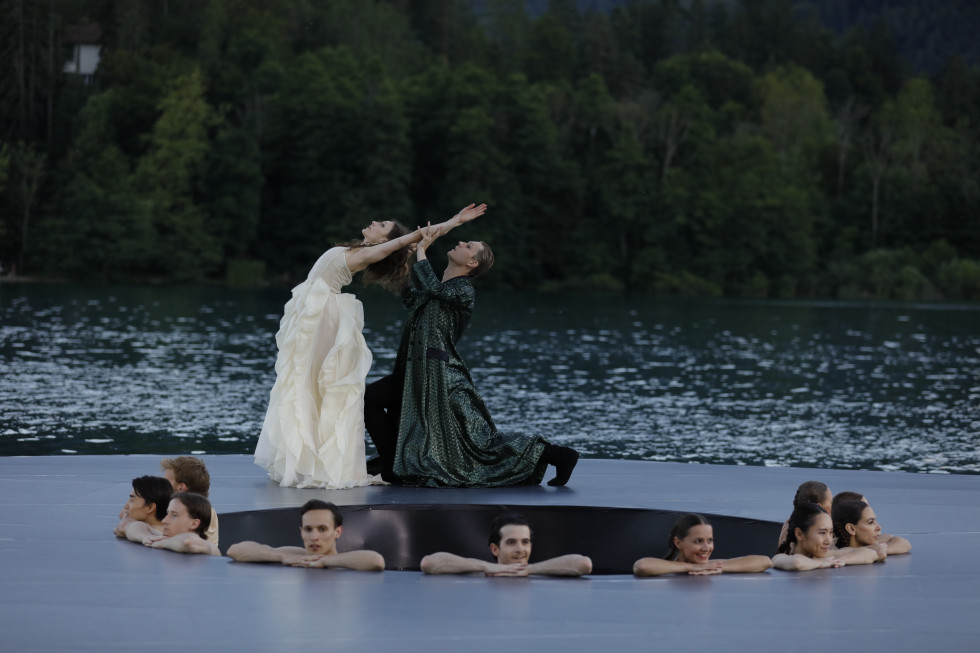The premiere of the Waterman ballet as inspiration for a kinder future

The Waterman ballet premiere | Author Slovenian Presidency of the Council of the European Union
The premiere of the Waterman ballet marked the start of the Slovenian Presidency of the Council of the European Union. The ballet staged on Bled Island and choreographed by internationally renowned choreographer Edward Clug was attended by representatives of the Slovenian Government and members of the College of Commissioners.
With the premiere of the Waterman ballet, a new theatre venue was born – Bled Island, with its natural amphitheatre provided by the ancient staircase on the southern end of the island and a floating ballet stage attached to this island in the middle of Lake Bled.
Bled Island is the only natural lake island in Slovenia and at the same time a historical, cultural and now also tourist heart of Slovenia. It has been inhabited since prehistoric times, and its pilgrimage church of the Assumption of Mary stands on a site that is one of the oldest preserved cult sites in Slovenia. The idyllic image for which the island is today known worldwide has inspired many artists, including the Slovenian poet France Prešeren, author of A Toast (Zdravljica), which was awarded the European Heritage Label in 2020 and whose seventh stanza was chosen as Slovenia's national anthem thirty years ago.
Prešeren's poem Waterman inspired choreographer Edward Clug. He took on its staging as a ballet with his own distinct poetics of contemporary ballet, in collaboration with his permanent creative team and artistic partners – composer Milko Lazar, set designer Marko Japl and costume designer Leo Kulaš. The performance of the 16-member ballet ensemble of the Slovenian National Theatre Maribor was convincing and impeccable. The choreographer entrusted the main roles of Waterman and Urška to guest soloists Sytze Jan Luske and Monja Obrul.
The story of an arrogant maiden from Ljubljana who takes so long to choose her dancing partner that she is finally chosen as a bride by the Waterman served as a starting point for choreographer Edward Clug's exploration of the modern human and its values. Could it be that, like Prešeren's young maiden, we have crossed the line of hubris and arrogance in the way we live today, which, according to the ancient Greeks, provokes "the wrath of the gods"?
Waterman is thus a Slovenian call to action and gift to both Europe and the world to return to our civilisational foundations after our struggle with the COVID-19 pandemic and to redefine our common spiritual and cultural values on these bases, both in relation to nature and to our fellow human beings. Through dialogue with the past, it addresses those of us here today, urging us to find solutions for the future, and brings the message that a love of life is the foundation of an integrated and united Europe.

